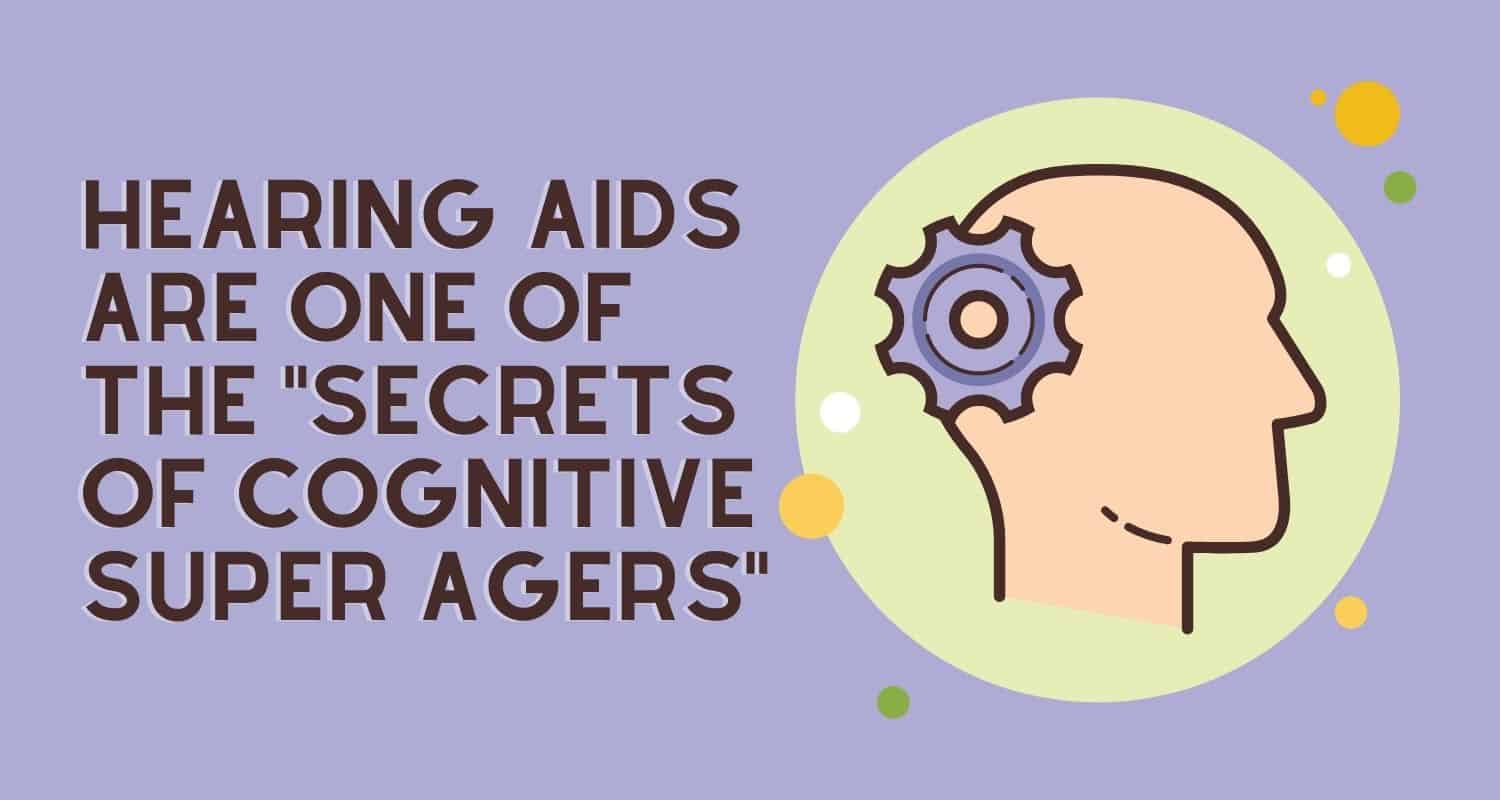
- How to Properly Clean Your Hearing Aids - April 15, 2024
- How to Handle Ear Infections With Hearing Aids - April 5, 2024
- Strategies for Working Professionals with Hearing Loss - March 27, 2024
As we become older, finding role models older than us becomes increasingly challenging. However, medical research has uncovered a new group to whom we can aspire: “superagers.” Those in their 70s and 80s with their decades-younger counterparts’ mental or physical capabilities are often given this title.
What makes a superager?
Dr. Bradford Dickerson, a neurologist at Harvard-affiliated Massachusetts General Hospital, and his colleagues have been researching super-agers for some years. Their findings show that taking on new mental tasks may be the key to maintaining brain tissue and function.
In one experiment, 81 healthy adults — 40 between the ages of 60 and 80 and 41 between 18 and 35 — were read a list of 16 nouns six times. They were given 20 minutes to recall as many words as possible. While 23 of the older participants could recall nine or fewer phrases, considered ordinary for their age group, 17 seniors — the super-agers — could recall 14 or more words, similar to the younger participants’ score.
The subjects were also given functional magnetic resonance imaging, which shows how the brain works. The researchers discovered that some brain parts in older adults with average test scores appeared thinner — an indicator of cell death — but not in those who scored as highly as younger ones. Emotion, language, and stress are all functions that these brain regions are involved in. They’re also in charge of organizing sensory input into a unified experience and regulating internal organs. The thicker these brain regions are the better a person’s memory and attention performance on memory and attention tests like the word memorization test.
How might hearing aids help you in aging well?
Age-related hearing loss, one of older adults’ most common health problems, can lead to cognitive decline, social isolation, and despair. Hearing aids, according to recent research from the University of Maryland’s Department of Hearing and Speech Sciences (HESP), restore not only hearing ability but also increase brain function and working memory.
Over six months, this research team followed a group of first-time hearing aid users with mild-to-moderate hearing loss. The researchers employed several behavioral and cognitive tests to evaluate individuals’ hearing, working memory, attention, and processing speed. They also examined electrical activity in the auditory cortex and midbrain in response to speech sounds.
Hearing aid use resulted in enhanced memory, improved neural speech processing, and increased ease of listening after the six months. The study’s findings were recently published in Clinical Neurophysiology and Neuropsychologia.
“Our results suggest that the benefits of auditory rehabilitation through the use of hearing aids may extend beyond better hearing and could include improved working memory and auditory brain function,” according to HESP Assistant Professor Samira Anderson, Ph.D., the leader of the research team. “In effect, hearing aids can actually help reverse several of the major problems with communication that are common as we get older.”
According to the National Institutes of Health, hearing aids could improve the lives of as many as 28.8 million Americans, but only about a third of that population uses them. According to a growing body of studies, hearing loss and cognitive deterioration in older persons are linked. Aging and hearing loss can cause changes in the brain’s ability to absorb speech efficiently, resulting in a reduced ability to understand what others are saying, particularly in busy environments.
According to the researchers, the findings of the UMD study give optimism that hearing aids can at least partially repair cognitive and auditory brain function deficiencies in older persons.
“We hope our findings underscore the need to not only make hearing aids more accessible and affordable for older adults but also to improve fitting procedures to ensure that people continue to wear them and benefit from them,” Anderson says.
You don’t have to live with hearing loss. If you’ve noticed changes in your hearing, contact us to take the first step towards becoming a superager!
